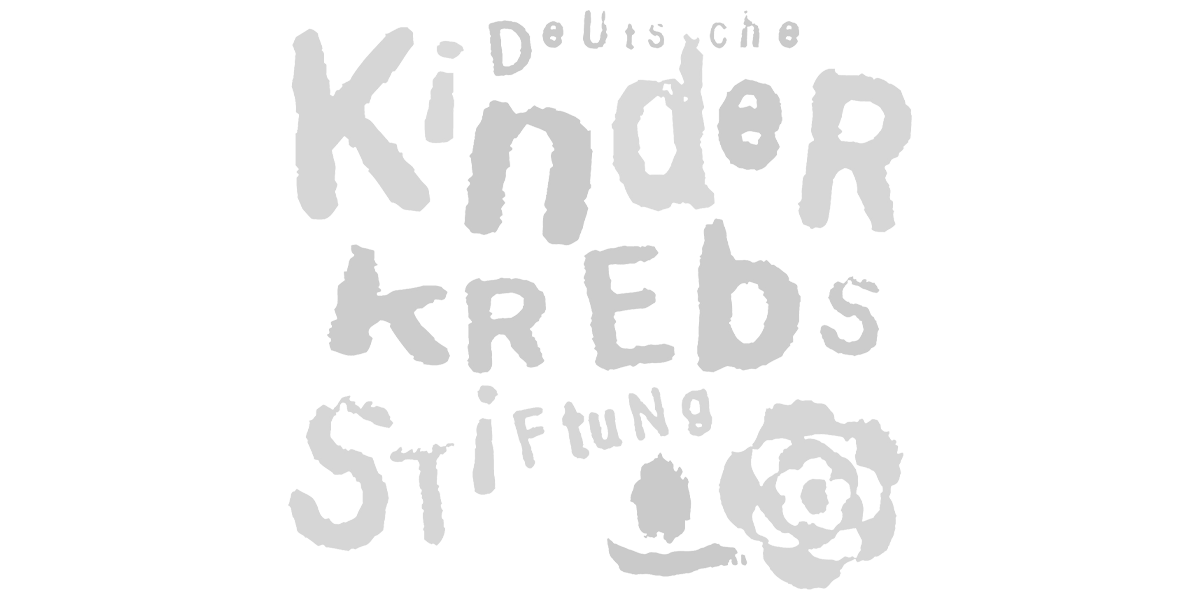"CDC73-associated (hyperparathyroid-jaw tumor) syndrome" – was ist das?
Das CDC73-assoziierte (Hyperparathyroid-Jaw)-Syndrom (HPT-JT) ist eine seltene Erkrankung, die auf Mutationen, also genetischen Veränderungen im CDC73-Gen (auch HRPT-2) beruht. Betroffene haben ein deutlich erhöhtes Risiko für Tumore der Nebenschilddrüsen verbunden mit einer Nebenschilddrüsenüberfunktion (primärer Hyperparathyreoidismus, PHPT), Knochentumore (ossifizierende Fibrome) im Ober- und Unterkiefer sowie Tumore der Nieren und der Gebärmutter.
Wie wird die Diagnose "CDC73-associated (hyperparathyroid-jaw tumor) syndrome" gestellt?
Klinische Diagnosekriterien
- PHPT UND ossifizierende(s) Fibrom(e) des Ober- und/oder Unterkiefers
- PHPT UND naher Verwandter mit HPT-JT-Syndrom
- Ossifizierende(s) Fibrom(e) des Ober- und/oder Unterkiefers UND ein naher Verwandter mit HPT-JT-Syndrom
Diagnosesicherung
Die klinische Diagnose wird durch Blutuntersuchungen (Messung von Kalzium und Parathormon) sowie bildgebende Diagnostik (Röntgen des Kiefers, Ultraschall der Nieren und des Beckens) gestellt.
Genetische Diagnostik
Die Diagnose „HPT-JT“ wird gesichert durch den Nachweis einer Mutation, also einer genetischen Veränderung des CDC73-Gens.
Wie hoch ist das Krebsrisiko?
Primärer Hyperparathyreoidismus
- Hauptbefund bei HPT-JT und bei bis zu 95% der Patient:innen zu finden
- Meist verursacht durch einen einzelnen gutartigen Nebenschilddrüsentumor, ein zweiter kann zeitgleich oder zeitlich versetzt auftreten
- In 10-15% der Fälle ist der PHPT durch ein bösartiges Nebenschilddrüsenkarzinom verursacht
- Auftreten meist im späten Jugendlichen- bis frühen Erwachsenenalter
Kiefertumore
- Bei 30-40% der HPT-JT-Patient:innen
- Z. T. Raumforderung mit Größenzunahmen, z.T. nur im Röntgenbild nachweisbar
- Können den Zahndurchbruch aus dem Kiefer unterbrechen und/oder die Atmung beeinträchtigen
Erkrankungen der Niere
- 20% der HPT-JT-Patient:innen haben eine Nierenbeteiligung: Meist Zysten, Hamartome (tumorartige, gutartige Gewebeveränderung) oder seltener Wilmstumore (bösartiger Nierentumor)
- Zystische Erkrankungen können einige kleine Zysten, aber auch beidseitig von Zysten durchsetzte Nieren sein
Tumore der Gebärmutter
- Finden sich bei etwa 75% der weiblichen HPT-JT-Patient:innen, Durchschnittsalter bei Diagnose beträgt 35 Jahre
- Können gut- oder bösartig sein
- Folgende können auftreten: Endometriose, Adenofibrom, Endometriumhyperplasie, Leiomyom und Adenosarkom
CDC73-associated (hyperparathyroid-jaw tumor) syndrome – was ist über die Entstehung bekannt?
Das CDC73-assoziierte (Hyperparathyroid-Jaw)-Syndrom beruht auf einer Mutation, also einer genetischen Veränderung des CDC73-Gens. Dieses Gen kodiert für das Protein Parafibromin, welches bei der Vervielfältigung genetischen Materials eine Rolle spielt. Liegt nun das CDC73-Gen in einer veränderten Form vor, kann auch das Protein Parafibromin nicht mehr korrekt funktionieren und es kommt zur Tumorentstehung.
Bisher ist unbekannt, wie häufig das HPT-JT-Syndrom auftritt. Bekannt ist, dass die Erkrankung von den Eltern an ihre Kinder weitergegeben werden kann. Der Erbgang ist dabei autosomal-dominant.
Gibt es eine Therapie?
Lorem ipsum dolor sit amet, consetetur sadipscing elitr, sed diam nonumy eirmod tempor invidunt ut labore et dolore magna aliquyam erat, sed diam voluptua. At vero eos et accusam et justo duo dolores et ea rebum. Stet clita kasd gubergren, no sea takimata sanctus est Lorem ipsum dolor sit amet. Lorem ipsum dolor sit amet, consetetur sadipscing elitr, sed diam nonumy eirmod tempor invidunt ut labore et dolore magna aliquyam erat, sed diam voluptua. At vero eos et accusam et justo duo dolores et ea rebum. Stet clita kasd gubergren, no sea takimata sanctus est Lorem ipsum dolor sit amet.
Diagnose CDC73-associated (hyperparathyroid-jaw tumor) syndrome. Wie geht es weiter?
Nach der Diagnose wenden Sie sich bitte unbedingt an eine:n Spezialist:in für dieses Krebsprädispositionssyndrom. Im folgenden Abschnitt schildern wir Ihnen, ob Untersuchungen zur Krebsfrüherkennung oder andere Maßnahmen erforderlich sind und wie diese erfolgen sollten. Zudem geben wir Ihnen ein paar Tipps, was Sie selber tun können. Bei Fragen wenden Sie sich bitte jederzeit an uns oder Ihren behandelnden Arzt oder Ihre behandelnde Ärztin.
Diagnose CDC73-associated (hyperparathyroid-jaw tumor) syndrome. Wie geht es weiter?
Nach der Diagnose wenden Sie sich bitte unbedingt an eine:n Spezialist:in für dieses Krebsprädispositionssyndrom. Im folgenden Abschnitt schildern wir Ihnen, ob Untersuchungen zur Krebsfrüherkennung oder andere Maßnahmen erforderlich sind und wie diese erfolgen sollten. Zudem geben wir Ihnen ein paar Tipps, was Sie selber tun können. Bei Fragen wenden Sie sich bitte jederzeit an uns oder Ihren behandelnden Arzt oder Ihre behandelnde Ärztin.
Medizinische Maßnahmen zur Früherkennung
Bisher existieren keine einheitlichen Früherkennungsempfehlungen für Patient:innen mit CDC73-Mutation. Aufgrund der aktuell verfügbaren Literatur wird folgendes vorgeschlagen:
- Blutuntersuchung jährlich, ab 5.-10. Lebensjahr
- Regelmäßig Ultraschall der Nebenschilddrüsen zur Detektion des seltenen nicht-funktionalen Nebenschilddrüsenkarzinoms im Rahmen einer CDC73-Mutation
- Röntgen des Kiefers mindestens alle 5 Jahre, regelmäßige professionelle Zahnreinigung ab 10 Jahren
- Ultraschall der Nieren mindestens alle 5 Jahre, beginnend ab Diagnosestellung. Kreatinin im Blut sollte bei Patient:innen mit bekannten Zysten regelmäßig bestimmt werden.
- Frauen im gebärfähigen Alter sollten sich regelmäßigen gynäkologischen Untersuchungen unterziehen. Ein Ultraschall des Beckens sollte bei Auffälligkeiten der Menstruation durchgeführt werden, ggf. mit nachfolgenden bildgebenden Untersuchungen (CT oder MRT).
CDC73-associated (hyperparathyroid-jaw tumor) syndrome – was Sie selber tun können
Darauf sollten Sie achten
Ein Hyperparathyreoidismus kann sich durch Knochenschmerzen äußern. Daneben kann es zum Auftreten von Nieren- oder Gallensteinen kommen, die Schmerzen im Bereich der Flanken bzw. im Oberbauch verursachen können. Auch Nierenzysten können Schmerzen im Bereich der Flanken auslösen. Daneben kann es zu Urinauffälligkeiten oder Harnwegsinfekten kommen. Tumore der Gebärmutter fallen meist durch Blutungen oder Veränderungen der Menstruation auf. Bei Tumoren des Kiefers kann es zu fehlendem Durchbruch der Zähne aus dem Kiefer, Schwellungen und Schmerzen kommen.
Sollten Sie eines der oben genannten Symptome oder andere Beschwerden oder Auffälligkeiten wahrnehmen, ist ein Arztbesuch dringend angeraten.
Weitere Informationen
Leider gibt es bislang keine uns bekannten Selbsthilfegruppen für Patient:innen mit CDC73-assoziiertem (Hyperparathyroid-Jaw Tumor)-Syndrom. Sobald uns hier neue Informationen zur Verfügung stehen, werden wir diese ergänzen. Patient:innen können sich jedoch jederzeit für das KPS-Register anmelden oder dies durch die betreuenden Ärztinnen und Ärzte vornehmen lassen.
Weitere Fragen?
Wir sind für Sie per E-Mail und telefonisch erreichbar. Zudem können Sie persönlich in unsere Sprechstunden kommen. Weitere Informationen entnehmen Sie am besten unserer Kontaktseite.








